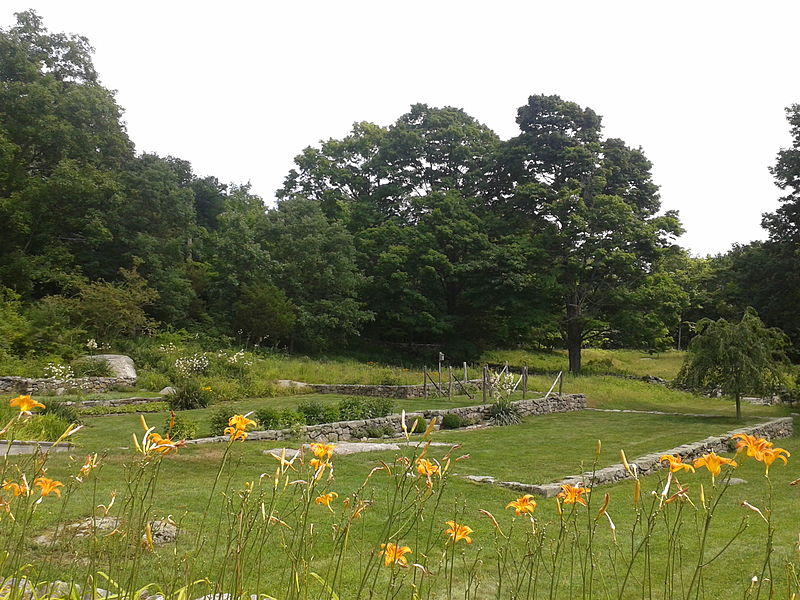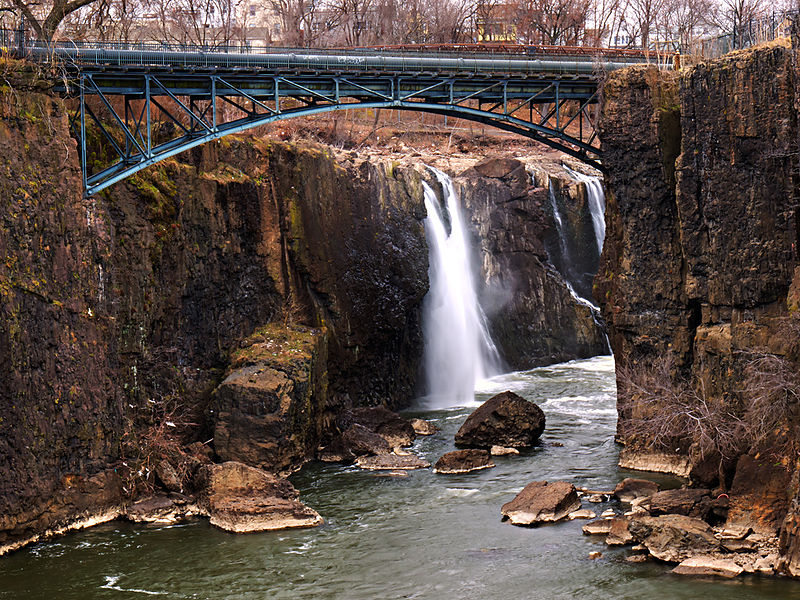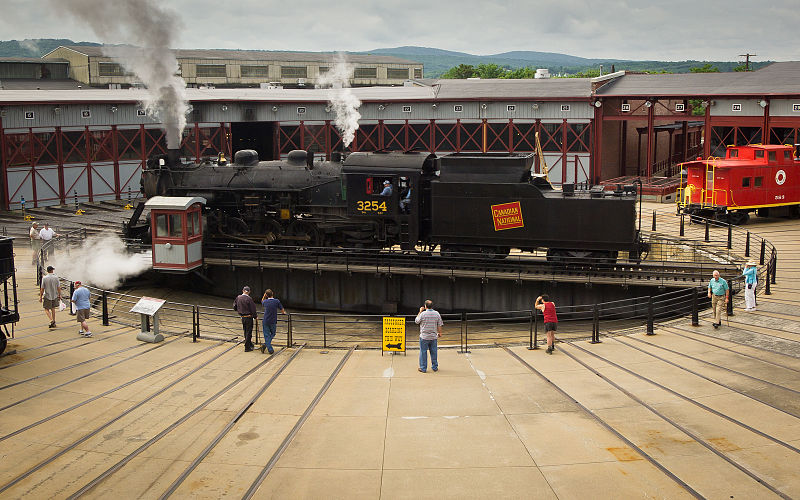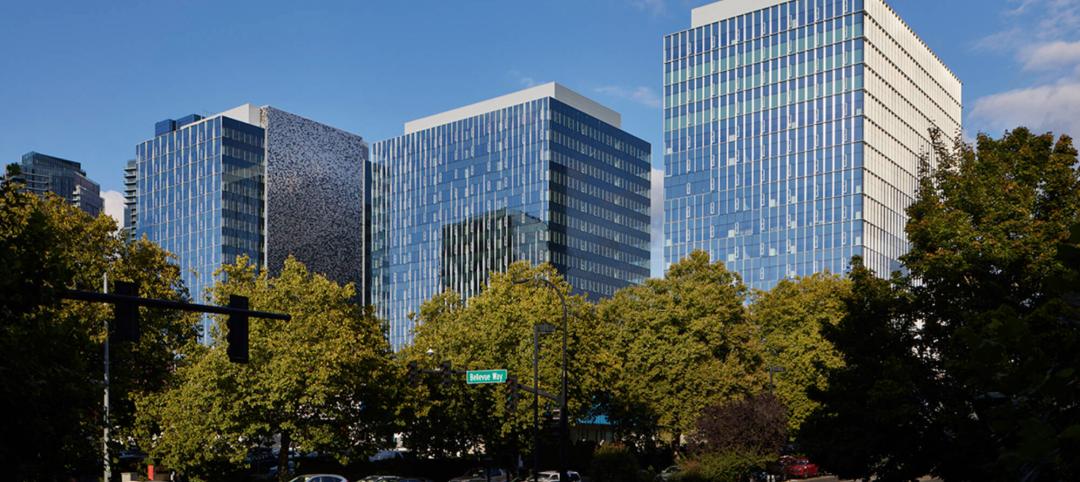The United States has 401 national parks, which are visited by over 275 million people every year. As the National Park Service (NPS) approaches its centennial anniversary in 2016, the agency is reevaluating how parks are used and maintained, Arch Daily reports.
To this end, NPS has joined with the Van Alen Institute and created the National Parks Now competition. This competition fits into the Institute's existing initiative, Elsewhere: Escape and the Urban Landscape, to investigate how built environments create a need for escape. The National Parks Now competition seeks to make parks relevant for a wider audience, especially smaller national parks near urban areas.
Four parks in the Northeast have been chosen as case studies for the competition:
- Sagamore Hill National Historic Site (Oyster Bay, NY) – President Theodore Roosevelt’s estate
- Steamtown National Historic Site (Scranton, PA) – a monument to the steam locomotive
- Paterson Great Falls National Historic Park (Paterson, NJ) – birthplace of American textile manufacturing
- Weir Farm National Historic Site (Ridgefield, CT) – summer estate of artist Julien Alden Weir
National Parks Now asks entrants to propose all types of interventions for these parks, including interactive installations, site-specific education and leisure opportunities, outreach and engagement campaigns, and self-led tours. Any ideas to expand the park-going public, especially those that can be used as a model for other parks, are welcome.
The competition is open to architects, designers, historians, communications professionals, and others.
After an initial phase of competition, four teams, one for each park site, will be selected to participate in a six-month, collaborative research and design process, and will receive $15,000.
A winning team will be chosen after this period and a prototype of their work will be implemented at their site in 2015. See more about the competition here.
Related Stories
AEC Tech Innovation | Oct 8, 2024
New ABC technology report examines how AI can enhance efficiency, innovation
The latest annual technology report from Associated Builders and Contractors delves into how artificial intelligence can enhance efficiency and innovation in the construction sector. The report includes a resource guide, a case study, insight papers, and an essay concerning applied uses for AI planning, development, and execution.
Healthcare Facilities | Oct 8, 2024
Herzog & de Meuron completes Switzerland’s largest children’s hospital
The new University Children’s Hospital Zurich features 114 rooftop patient rooms designed like wooden cottages with their own roofs. The project also includes a research and teaching facility.
Mixed-Use | Oct 7, 2024
New mixed-use tower by Studio Gang completes first phase of San Francisco waterfront redevelopment
Construction was recently completed on Verde, a new mixed-use tower along the San Francisco waterfront, marking the end of the first phase of the Mission Rock development. Verde is the fourth and final building of phase one of the 28-acre project that will be constructed in several phases guided by design principles developed by a design cohort led by Studio Gang.
Brick and Masonry | Oct 7, 2024
A journey through masonry reclad litigation
This blog post by Walter P Moore's Mallory Buckley, RRO, PE, BECxP + CxA+BE, and Bob Hancock, MBA, JD, of Munsch Hardt Kopf & Harr PC, explains the importance of documentation, correspondence between parties, and supporting the claims for a Plaintiff-party, while facilitating continuous use of the facility, on construction litigation projects.
Glass and Glazing | Oct 7, 2024
Pattern language: An exploration of digital printing on architectural glazing
Architectural Glazing has long been an important expressive tool which, when selected and detailed thoughtfully, can contribute to the successful transformation of architectural concepts to reality.
University Buildings | Oct 4, 2024
Renovations are raising higher education campuses to modern standards
AEC higher ed Giants report working on a variety of building types, from performing arts centers and libraries to business schools. Hybrid learning is seemingly here to stay. And where possible, these projects address wellness and mental health concerns.
AEC Tech | Oct 3, 2024
4 ways AI impacts building design beyond dramatic imagery
Kristen Forward, Design Technology Futures Leader, NBBJ, shows four ways the firm is using AI to generate value for its clients.
Laboratories | Oct 2, 2024
Trends in scientific research environments: Q&A with Flad's Matt McCord
As part of an ongoing series, Matt McCord, AIA, NCARB, LEED AP BD+C, Associate Principal with Flad Architects, discusses the future of the scientific workplace.
Museums | Oct 1, 2024
UT Dallas opens Morphosis-designed Crow Museum of Asian Art
In Richardson, Tex., the University of Texas at Dallas has opened a second location for the Crow Museum of Asian Art—the first of multiple buildings that will be part of a 12-acre cultural district. When completed, the arts and performance complex, called the Edith and Peter O’Donnell Jr. Athenaeum, will include two museums, a performance hall and music building, a grand plaza, and a dedicated parking structure on the Richardson campus.
Data Centers | Oct 1, 2024
10 biggest impacts to the data center market in 2024–2025
While AI sends the data center market into the stratosphere, the sector’s accelerated growth remains impacted by speed-to-market demands, supply chain issues, and design innovation necessities.



















